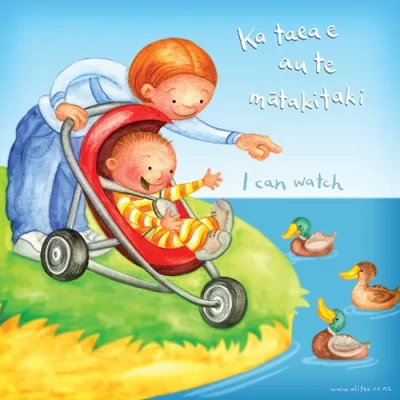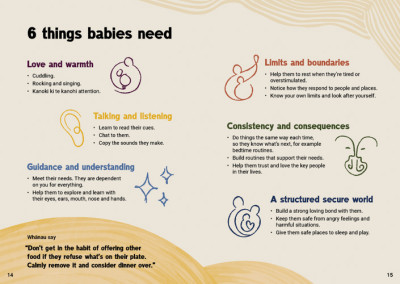
Keeping things familiar and safe
Being consistent helps to keep a baby safe. While rituals and routines are important for the baby, so is consistency in how the other family members behave.
The Tākai poster ‘Our whānau tikanga’ says, ‘Kids feel safe when rules don’t change’.
Ask the whānau:
- What happens at your place – are there consistent expectations for behaviour for everyone who lives with you?
Consistency and consequences
Everything a baby learns is from the people, places and things around them. Through ‘cause-and-effect testing’ they learn about consistency. For example, ‘Does the same thing happen every time I push that button?' Yes, the phone lights up and makes a sound… the TV turns on, off, on, off. Consistency means that the same thing happens every time.
Being consistent can keep a baby safe, keep precious items safe, and keep the peace in the family. Consistency is a key tool used in positive parenting.
Rituals and routines provide consistency for a baby.
- What about the people around baby – do they act in a consistent way?
- Do the adults in baby’s world ‘walk their talk’?
- How could you get everyone in your house to be as consistent as possible?
Mistakenly, some people might think a baby at this stage is still too young to notice or be influenced by how the people around them act.
- What would your baby do if you were to eat an ice cream in front of them now?
- Have you ever noticed how they respond to loud yelling or shouting near them?
And they do notice shouting, especially from the people who are around them most often — those they love: their parents and the rest of the whānau.
Strategies for consistency
Some days parents might think, ‘How many more times do I have put the dog’s bowl outside / clean up house plant dirt from the carpet / remove a bottle top from a mouth?’
- Are there things that you find yourself having to do again and again?
- What could you do to lessen the number of times you have to do it?
Staying firm and consistent can feel like hard work some days. But it does have a huge impact on the teaching and guiding of young children and on positively influencing their behaviour.
- What type of rituals or routines happen in your house now?
- What do you like and dislike about them?
- How do they have an impact on baby?













